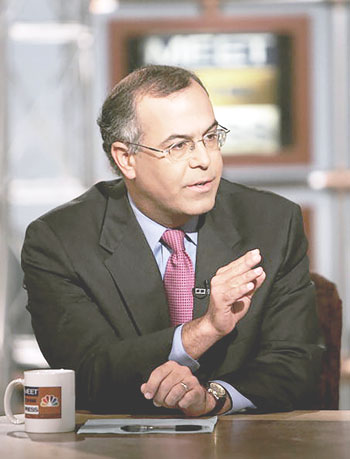
Two topics that caught my attention and have kept my interest during the many years in which I have been teaching philosophy are the meaning of commitment and the meaning of freedom. I have found that insights into commitment lead to insights into freedom and insights into freedom lead to insights into commitment.
Rather than being opposed to one another, they are more like companions. The more I appreciate one, the more I appreciate the other. One of the reasons that re-reading David Brooks’ latest book, “The Second Mountain,” has been an exceptionally enjoyable experience is that Brooks seems to have the same view of commitment and freedom that I have.
Discussing the relation between love and commitment, Brooks states that once love strikes, there is an urge to make a commitment. He quotes the following words from philosophers Dietrich and Alice von Hildebrand:
“A man who would say ‘I love you now, but how long it will last I cannot tell,’ does not truly love; he does not even suspect the very nature of love. Faithfulness is so essentially one with love, that everyone, at least as long as he loves, must consider his devotion an undying devotion. This holds good for every love, for parental love and for filial love, for friendship and for spousal love. The deeper a love, the more it is pervaded by fidelity.” (pages 54-55)
I agree with the comments of the von Hildebrands. Whenever someone loves another, the intention of the lover is to love forever. It is impossible to intend to love someone for a weekend or a week or a month. In fact it is possible that the love will last only a short time, but I don’t think that can be the intention of the lover. I think when anyone seriously says “I love you,” implicit in that statement is the intention to love forever.
Many in our culture think of commitments as limiting freedom. There is an obvious truth in that belief. For example, when a man commits himself in marriage to another, he has closed off some previously possible relationships. He has vowed that his relationship with his wife will be unique, that he is no longer free to relate to other women the way he has chosen to relate to his wife. His self-gift to his wife will be exclusive.
I believe, however, that the possible increase in freedom through a marriage relationship is almost unlimited. A marital commitment can influence and enhance a person’s entire life. I believe the same about a life commitment by a priest or any religious. The self-gift through marriage or a religious life-commitment closes some doors, but also opens numerous possibilities for growth in freedom.
Claiming that our commitments allow us to move to a new level of freedom, Brooks writes the following:
“In our culture we think of freedom as the absence of restraint. That’s freedom from. But there is another and higher kind of freedom. That is freedom to. This is the freedom as fullness of capacity, and it often involves restriction and restraint. You have to chain yourself to the piano and practice and practice year after year if you want to have the freedom to really play. You have to chain yourself to a certain set of virtuous habits so you don’t become a slave to your destructive desires — the desire for alcohol, the desire for approval, the desire to lie in bed all day.” (page 58)
Any life commitment that involves a vow or promise of love (as all life commitments should) demands a great deal of preparation and perhaps even training. Though the rewards of a loving life commitment are enormous, so are the demands.
I think the very nature of a loving life commitment is countercultural. That is why preparation and education is so important as someone moves toward making a life commitment. The very nature of a life commitment means that it cannot be tried out or tested. To make a temporary commitment is radically different than making a life commitment.
All sorts of questions can be asked before making a life commitment, but once it is made, there is a finality about it. Philosopher Gabriel Marcel thought that once a life commitment has been made, any questioning of it should be looked on as temptation.
Before a life commitment can be made, a certain level of maturity would seem to be necessary. I wonder if there is anything in human experience that has more potential to mature a person than a life commitment. By giving ourselves to some reality larger than we are, we find ourselves transformed. A successful life commitment should lead to a new level of maturity.
Father Lauder presents two 15-minute talks from his lecture series on the Catholic Novel,Tuesdays at 9 p.m. on NET-TV.
